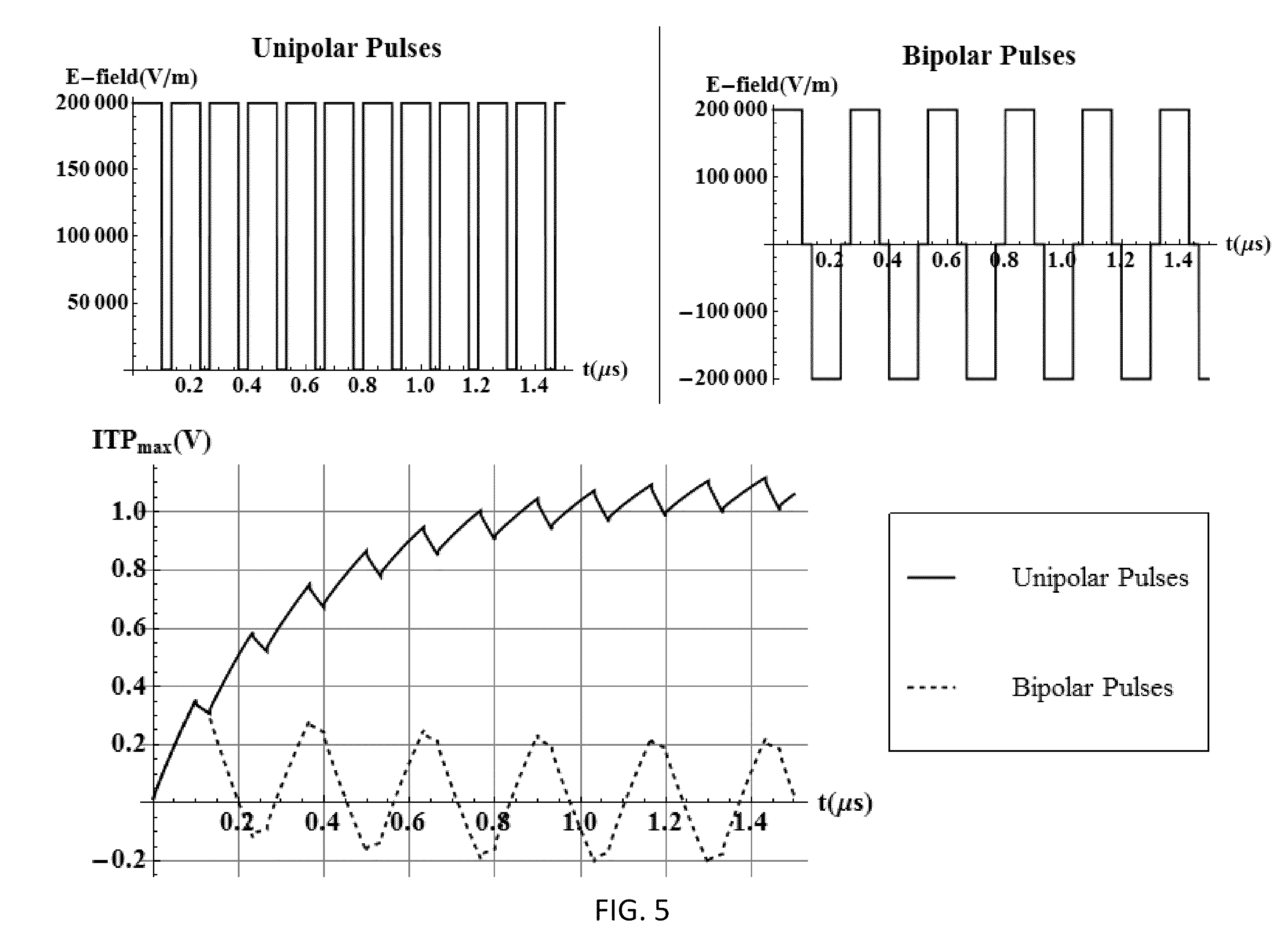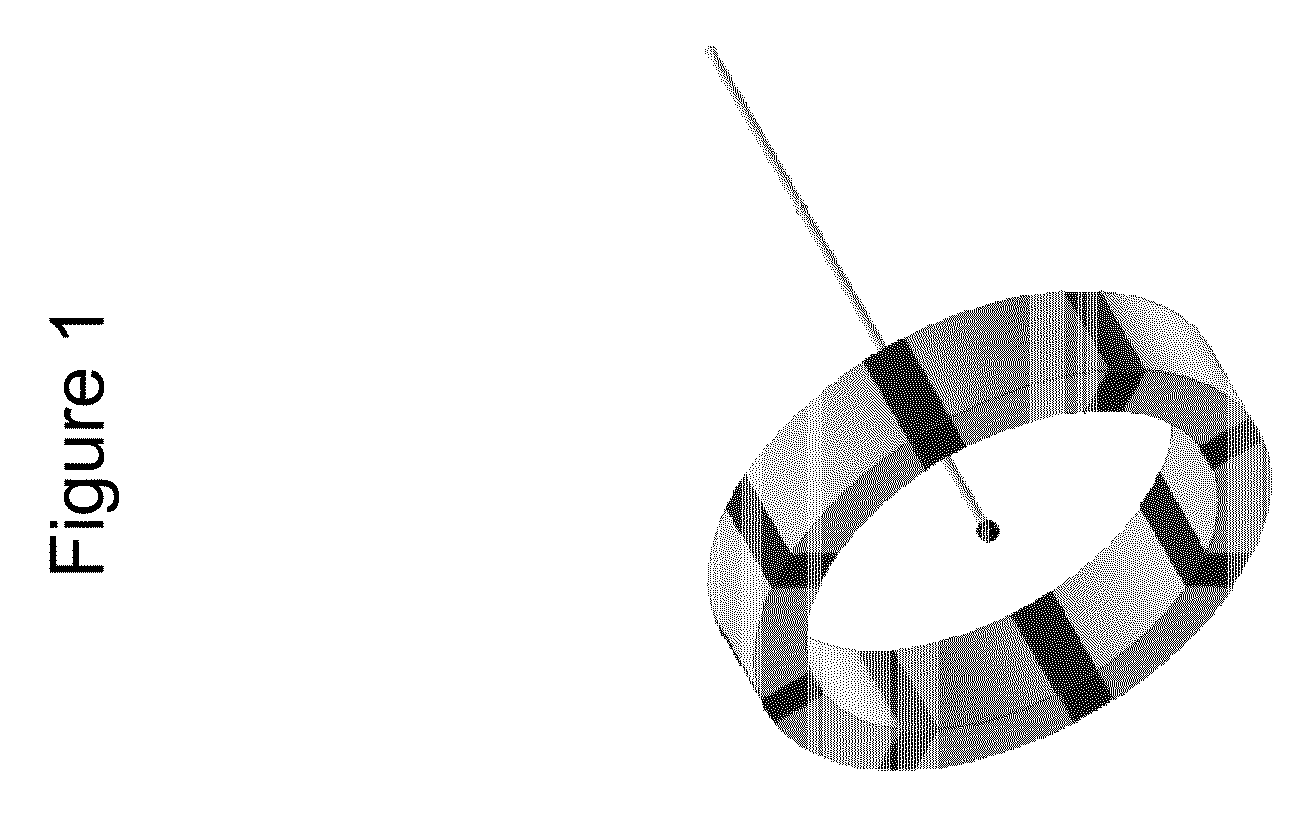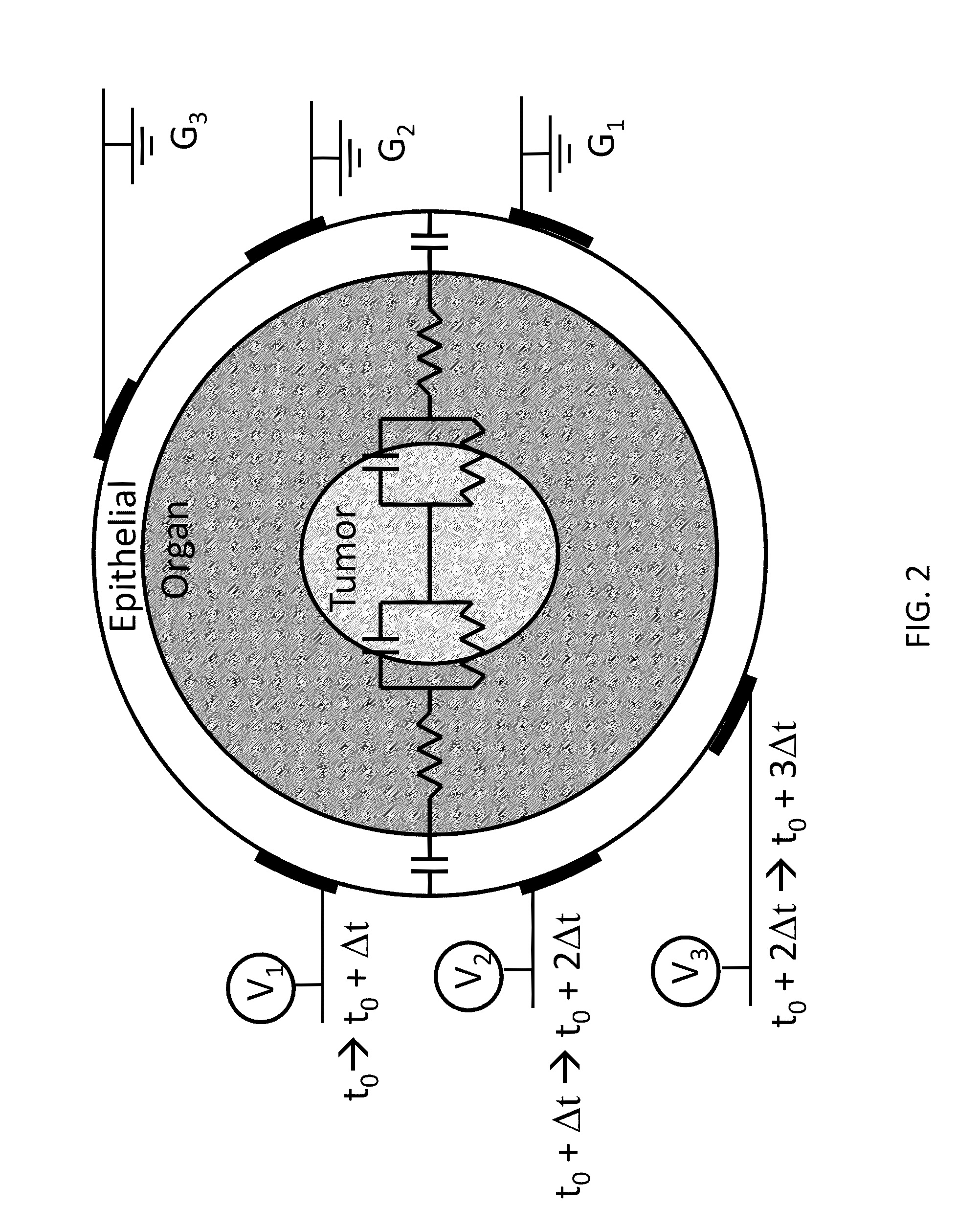Integration of very short electric pulses for minimally to noninvasive electroporation
a technology of electric pulses and electroporation, applied in the field of biomedical engineering and medical treatment of diseases and disorders, can solve the problems of reducing the amount of underlying tissue that can be treated, and achieve the effects of promoting cell death, reducing voltage, and increasing the electric field
- Summary
- Abstract
- Description
- Claims
- Application Information
AI Technical Summary
Benefits of technology
Problems solved by technology
Method used
Image
Examples
example 1
Optimization of Voltage Parameters and Nanorod Concentrations for Selectively Killing Leukemia Cells In Vitro
[0102]Gold nanorods can be used to enhance the selectivity of pulsed electric field therapies to treat leukemia, a cancer that starts in the bone marrow and causes a large number of blood cells to be produced. Treatment of leukemia depends on the type and extent of the disease but often involves chemotherapy or radiation therapy. In autologous stem cell transplantation, stem cells from the patient's own marrow or blood are obtained and engrafted after the patient receives an intense dose of chemotherapy or radiation in an attempt to restore hematologic and immunologic function following treatment. There is the potential for disease recurrence if the engrafted stem cells contain even a single leukemic cell. Gold nanorods combined with antibody targeting techniques provide a means to selectively kill leukemic cells through the localized amplification of an applied external elec...
example 2
Computational Model for Investigating the Electric Field Distribution Within Bony Tissues
[0109]Imaging can be combined with computational modeling to provide insight into the unintuitive, highly complex interaction of electric fields with biological tissue. The electric field distribution within spongy bone can be determined to quantify treatment areas following supra-poration. Results from in vitro experimental data can be used to define electric field thresholds for killing bone marrow cells in the model. Further, image reconstructions and treatment area calculations obtained from in vivo experiments further refine the model geometry and properties.
[0110]A mathematical simulation for predicting the electric field distribution within a spongy bone structure where bone marrow resides among the trabeculae has been developed. A commercial finite element method (FEM) package, COMSOL Multiphysics (version 3.5 a), was selected because of its variety of features and functionality, as well...
example 3
Cell Death in Bony Tissue Using Pulsed Electric Fields
[0116]To demonstrate that pulsed electric fields can safely and predictably induce cell death in bony tissue, a rabbit model is used as the animal of study because techniques have been established for performing imaging and histological analysis on bony substructures in rabbits. Like humans, rabbits have a well developed haversian system, making them ideal candidates for obtaining translatable results from experiments on bone substructures. Six-month old rabbits are used because it is known that they achieve skeletal maturity at nineteen to twenty-four weeks. The IRE and supra-poration pulse generators are used in conjunction with a custom made bipolar electrode (4 mm in diameter) to deliver the electric pulses. Two IRE pulsing protocols and two supra-poration pulsing protocols are implemented for a comparison of treatment areas (Table 2). For each of the trial groups, including an untreated control group, four rabbits are utiliz...
PUM
 Login to View More
Login to View More Abstract
Description
Claims
Application Information
 Login to View More
Login to View More - R&D
- Intellectual Property
- Life Sciences
- Materials
- Tech Scout
- Unparalleled Data Quality
- Higher Quality Content
- 60% Fewer Hallucinations
Browse by: Latest US Patents, China's latest patents, Technical Efficacy Thesaurus, Application Domain, Technology Topic, Popular Technical Reports.
© 2025 PatSnap. All rights reserved.Legal|Privacy policy|Modern Slavery Act Transparency Statement|Sitemap|About US| Contact US: help@patsnap.com



